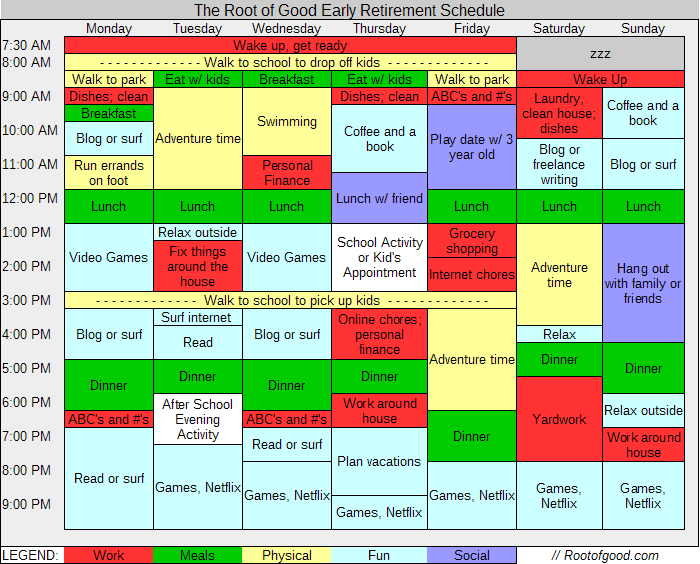For many people, retirement means pushing the stop button on their everyday lives. With no work in tow, suddenly other aspects of their lives stop too. Their community changes and all their activities are put to a stop. But it doesn’t have to be that way, as life has to continue even after retirement.
There are three categories that must be our active projects after we retire:
- work and labor,
- play,
- communion and ritual.
Paid employment may end, but work (commitment to useful projects) should be an active project. Labor keeps us focused and resolute. Play is critical for seniors. It promotes curiosity, vitality, and optimism for the future. Keeps your mind younger as well. Communion and ritual are also essential. The former builds networks of caring; the latter secures identity and creativity.
Here are some activities you can do post-retirement that satisfies the three categories mentioned above:

Work and paid employment are not the same. While paid employment generally ends with retirement, that does not mean that the work ends. While paid employment gets you money and the things you want, work is an active rendering of the world to meet the needs of oneself and others. The “goods and services” workers provide caring for family members, making meals, fixing leaky faucets, and running errands. Taking this as an example, we can offer those same skills, developed over a lifetime, to others in the community.
A life of ease may be the dream of many who are exhausted with paid work. But labor of any sort will give you resolve, make you feel useful keeps you focused and helping us maintain discipline. Finding work hones our judgment about goals (what to do and not do) and about the allocation of resources. You can choose the work you want as it varies from one person to the other, but as long as you keep that sense of serious, protracted commitment to projects that matter and are consequential.

Just because work keeps us sharp does not mean play should be forgotten. Post-retirement play contains a multitude of benefits from keeping us active; it helps us set goals and explore ways to achieve them. Unlike work which many of us can be averse to, we feel no compulsion to play. The difference between work and play is that playful activity has no enduring consequences; neither does it garner practical rewards.
What is the purpose of it then? Because it’s fun and brings us joy. These activities that we can do for play include being artistic, play sports and games, dance, sing, and tell jokes. However, play is more than fun. Play encourages curiosity, helps us feel vital, and promotes optimism about future challenges. Play is important to every stage of life, and especially in retirement years.
Communion

In a world that is becoming increasingly individualistic, retirement paints an extremely dark future. It is of an older person living alone, without anyone to care for them. They live an isolated life until physical and mental disabilities claim them.
The picture visualizes is an extremely dark one and yet it is the reality for many. Independence is important but human interaction and connection is just as important. By connecting with other people, you will be able to expand your world view as they are the equivalent to sounding boards for our judgements. Other than that, they give us standards for our behaviors and accomplishments and they obligate us with their demands. In short, communicating with others is a way of understanding how the world works and to judging our place within it.
Lastly, communication encourages caring for other people as well as receiving the care in return. These connections transcend individuality and the bouts of loneliness that can come between it.
Ritual

Source: Rootofgood.com
Another aspect that we all need in post-retirement is keeping discipline on our rituals. Personal rituals like daily routines ensures that we still have activities to do; social rituals like greeting customs can stabilize interpersonal connections while cultural rituals like patriotic and religious ceremonies show that we are part of great traditions. Rituals mentioned above secures our belief that we are not alone.
As one ages, the desire for continuity and orderliness becomes even more important as it provides optimism for the future. Despite how you’ve aged, rituals will provide context to one’s life.
What do you think of this article? Share your opinion with us in the comments section below!






